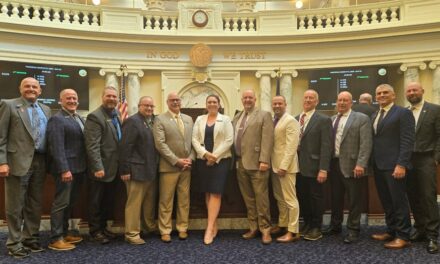In the ever-evolving landscape of American politics, the tension between established bureaucratic practices and new administrative policies continues to capture headlines. Recent reports suggest that some former officials within the State Department are exerting efforts to alienate and undermine the administration of former President Donald Trump, utilizing skills honed during prior engagement in regime change initiatives. This revelation raises critical questions about the role of public servants in private political operations and the integrity of U.S. governance.
As the Trump presidency progressed, various officials across numerous federal agencies were dismissed or resigned, creating a vacuum filled with conflicting loyalties and ideologies. According to sources within the political realm, certain former State Department officials, disillusioned with Trump’s foreign policy directions and domestic agenda, may have resorted to tactics not unlike those used in their previous roles during turbulent times of regime change abroad.
The explicit use of political acumen acquired through years of service—often involving complex diplomatic negotiations and strategic planning—in attempting to foil a sitting president presents an ethical conundrum. In such cases, the priority appears to be the political objectives of a subset of civil servants over the mandates bestowed by the electorate’s choice. Historical precedents show that bureaucracy can sometimes operate contrary to the interests of the administration, especially when divergent political philosophies clash.
More specifically, as the Trump administration faced unprecedented challenges—from impeachment trials to international trade disputes and rising tensions worldwide—the groundwork for bureaucratic resistance seemed to gain speed. Displying a strong desire for a different direction in U.S. policy, some bureaucrats allegedly chose to engage in behavior that could be characterized as ‘subterfuge’, taking advantage of their previous experiences to advance a more favorable political environment for their goals.
This latest claim raises numerous concerns around loyalty, professionalism, and accountability within the politicized corridors of power in Washington, D.C. Critics of the former bureaucrats argue that public servants, regardless of political alignment, have a duty to serve the interests of the nation, not act as political operatives attempting to manipulate the system to their favor. The situation poses a significant conflict, as voters could soon find themselves questioning the motives behind those working within the government, positioned ostensibly to represent them.
The leaking of sensitive information or the withholding of vital support can destabilize governance and diminish trust between various departments. Such actions can have far-reaching consequences that extend beyond an individual administration. Political insiders suggest that a collective mindset among these disgruntled officials effectively creates an underground resistance that can impact crucial U.S. policies both domestically and internationally.
Highlighting specific examples of previous regime change efforts can offer context to this disturbing pattern. The history of U.S. involvement in foreign nations, where officials would often destabilize governments, manifesting in civil unrest or even war, can draw a disturbing parallel to internal dissent against the Trump administration. It is unsettling to consider, but the current political climate serves as a reminder that serious consequences may arise from bureaucrats acting on their disapproval of administration policies.
Moreover, the implications are broad, extending beyond party lines. This issue sparks discussion regarding the politicization of public service, an aspect of governance that traditionally has sought impartiality. When officials feel empowered to undermine an administration they oppose, it creates a precedent that could allow future administrations to also experience similar insurrections, ultimately leading to a significantly less stable government framework.
This predicament isn’t the first instance of bureaucratic resistance being publicized under a specific president; it recalls instances during other administrations where political appointees or career officials have openly clashed with the policies or motives of their appointed leaders. However, the intensity and organization of opposition seem uniquely severe in this case, pushing the boundaries of examined governmental function.
Given these troubling dynamics, the need for transparency and accountability within government agencies becomes more pressing than ever. Empowering public servants with the ability to challenge political changes could be perceived as necessary in certain situations, especially if designed to prevent unethical practices. Still, it raises the ethical dilemma of whether these actions warrant scrutiny under the lens of upholding democratic values.
The backdrop of this overarching conflict relates clearly to the longstanding divide within U.S. party politics. A work environment where officials feel compelled to contradict directives could hinder progress and reform across essential areas of governance. When officials place their political beliefs above their duties, it can lead to ineffective administration, where policy goals are frequently blocked or undermined by the very people intended to implement them.
In light of the current scenario, it would be prudent for incoming administrations to prioritize the establishment of a cooperative relationship with existing bureaucrats. Building respect based on transparent communication and mutual understanding could help mitigate the temptation for bureaucratic sabotage, ultimately promoting a more unified approach to governance. Such a proactive strategy may also help prevent ongoing rifts that hinder the political process, allowing government officials to refocus their energies on service rather than opposition.
The need to advocate for a cultural shift within the State Department—and governmental service broadly—aligns with the broader objective of restoring public faith in the federal apparatus. Politically motivated maneuvers by former bureaucrats underscore the urgency of instilling values of service and loyalty to the constitution above personal ideologies.
As we navigate the remnants of this deeply polarized era, it’s essential to reflect on the broader implications of these actions by former State Department officials. The intersection of bureaucracy and politics will undoubtedly evolve, but its integrity must remain resolute if the nation is to thrive. Understanding the balance between advocacy for values and the responsibility of the public service is crucial for effective governance moving forward.
In conclusion, while the conflict of interest posed by civil servants actively working against a sitting president complicates efforts in governance, it also presents an opportunity for growth and change within the political system. Recognizing the patterns and addressing the underlying issues behind bureaucratic sabotage may pave the way for future administrations to foster a healthier political environment, focused on collaboration and national interests. Whether the focus shifts to cultivating a more adapted bureaucratic system or reinforcing existing structures remains to be seen, but the implications of current tumultuous dynamics will reverberate through American political history for years to come.
































